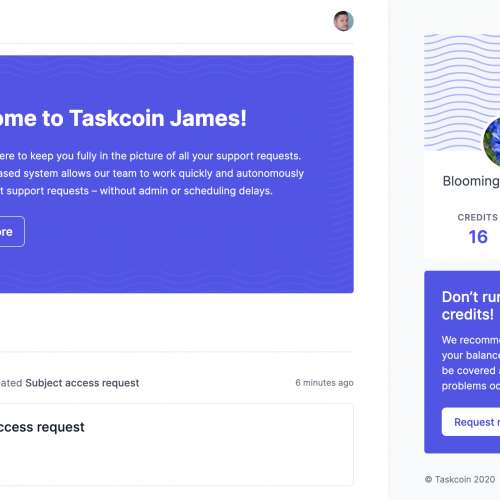 Geoff Anderson is the CEO and co-founder of PixelPin – an image based authentication platform replacing passwords with images, and the sponsor of Simpleweb’s upcoming “secrets” themed hacknight.
Geoff Anderson is the CEO and co-founder of PixelPin – an image based authentication platform replacing passwords with images, and the sponsor of Simpleweb’s upcoming “secrets” themed hacknight.
We spoke to Geoff about his startup journey and what he thinks about the future of privacy…
Founding PixelPin
Geoff’s a software engineer by trade, having spent 5 years developing a new InfoSec business inside security and technology giant, Thales in Wells, Somerset. When the Wells branch closed down, Geoff took on consulting work, until he teamed up with PixelPin inventor, Brian Taylor…
“When I met Brian, he had the idea but he didn’t really know how to get it going.”
Geoff and Brian got a Government funded Innovate UK grant, which required founders to match what the grant put in. Around this time, PixelPin was accepted into Telefonica’s Wayra startup accelerator, enabling them to get the angel investment necessary to get started.
Geoff and Brian have plenty of business and engineering experience between them. “We thought we would know quite a lot about running a startup” says Geoff, “but there was a lot things we didn’t know a lot about…there is a big difference between delivering projects inside a company and developing a new software service!”
Raising money
In 2015, PixelPin crowdfunded £508,000 on Seedrs, more than doubling their sought investment. “That was a major breakthrough” says Geoff, “it allowed us to have a proper board and get more developers… it also allowed us to essentially refresh the whole product stack. We added two factor authentication so we can now have multiple databases around the world.”
Building out a team and revamping their product was like a new beginning for PixelPin says Geoff. “We launched in the market again in the middle of last year [2016] so [it was almost like] we started again in our business development activities.”
They have since brought on board their first huge client, a B2C with millions of users in Taiwan and have KMPG on board as a reseller. They’re currently live on the Government’s Innovate UK site and are in talks with a number of banks.
The end of passwords?
Geoff sees PixelPin as an intermediary between typical passwords and biometrics (fingerprints, selfies etc).
“People have passwords and pins that they don’t want anymore” says Geoff, “but at the moment they have to have them. On the other hand, there’s biometrics, which are cool but don’t cover everyone, lots of people won’t use them and they’re quite expensive.”
While biometrics seem to be taking off, Geoff says “we’re hearing very different views from different companies – some of the banks won’t touch fingerprint readers and other ones put them straight on their apps. I think we’re at a very transient stage of authentication at the moment.”
The future of privacy
Geoff sees the future of privacy involving plenty of options. “I don’t think we will get everyone on the same page to be honest, so I think we’re going to have to give people more choices.”
For Geoff, it seems obvious that pictures will be preferable to passwords, but “people and companies are scared of changing consumer behaviour so they’re not rushing to make changes. [For companies] keeping users is so important that I think we’re just going to see more options available for people when they log in.”
Even banks are going to have to accept these changes, says Geoff. “There’s lot of challenger banks coming out and the main banks are going to have to deal with that.”
People have very different “risk appetites” says Geoff, “even in the same industry, some people will be very laissez faire about security whilst others feel very, very strongly about it.”
Geoff believes that the risks associated with information privacy will “become more and more known. As people’s personal data becomes more widely used, I think it will become more of a societal issue [where we ask] what society do we want to be in and, ultimately, whether we still want privacy or not.”
One thing that Geoff believes needs to be addressed is awareness. “People aren’t aware that they’re permanently logged into Facebook even if they’re not using Facebook” he says. “I think a lot of it is to do with education and a lot of companies make it difficult for you to log out because they know it’s hard for you to log back in so they would rather you didn’t even think about logging out so that means (a) they always keep you as a user and (b) they can continue collecting data from cookies etc.”
Geoff believes that, in the future, people could end up “managing your own data so if you want to sell it, you can do, but you get some money for it. Apparently if you divided the value of Facebook by the number of users it’s something like $168 dollars per person. That’s how much they value each user on Facebook and how much your data is worth to Facebook. My ideal world would be that you could manage it yourself, but I know we’re a long way from that and it’s not coming anytime soon.”
Find out more about PixelPin at pixelpin.co.uk and RSVP to our secrets hacknight on Meetup.



